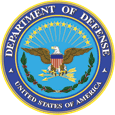The assistant secretary of defense for global strategic affairs, Madelyn Creedon, told the House Armed Services Committee’s subcommittee on emerging threats and capabilities on Tuesday that the U.S. Department of Defense is developing rules of engagement for cyberspace.
Creedon was joined by Teresa M. Takai, the DOD’s Chief Information Officer, and General Keith Alexander, the commander of U.S. Cyber Command. The interim framework, called a transitional command-and-control model for cyberspace operations, will standardize “existing organizational structures and command relationships across the department for the application of the full spectrum of cyberspace capabilities,” Creedon said.
 “DOD continues to develop effective strategies for ensuring the United States is prepared for all cyber contingencies along the entire spectrum,” she added, “from peace to crisis to war.”
“DOD continues to develop effective strategies for ensuring the United States is prepared for all cyber contingencies along the entire spectrum,” she added, “from peace to crisis to war.”
Speaking budget, Takai told the subcommittee that the $37 billion requested for the 2013 IT budget will include $3.4 billion for efforts to protect information systems, networks, and data against known cyber vulnerabilities. There’s also $182 million for Cyber Command, intended for cryptographic systems, communications security, network resiliency, workforce development, and development of cyber security standards and technologies department-wide.
Related Reading – Department of Defense: Cyberspace is a New Warfare Domain
Takai also said that improvements and efficiency changes will come from the consolidation of the DOD’s IT infrastructure, “networks, computing services, data centers, application and data services, while simultaneously improving the ability to defend that infrastructure against growing cyber threats.”
Alexander described five key areas Cyber Command is working on including building the enterprise and training the force; developing a defensible architecture; getting authorities needed to operate in cyberspace; setting the teamwork properly across U.S. government agencies; and creating a concept of operations for operating in cyberspace.
He noted that the DHS, FBI, and the DISA (Defense Information Systems Agency), were all “key partners” in the Cyber Command’s mission of cyber defense for the nation.
“The intelligence community’s worldwide threat brief to Congress in January raised cyber threats to just behind terrorism and [nuclear] proliferation in its list of the biggest challenges facing the nation.”
“I think we’re making progress,” Alexander said, “[but] the risks that face our country are growing faster than our progress and we have to work hard on that.”
Related Reading – Department of Defense Makes Move Towards Android
Related Reading – Department of Defense Projects to Use More Open Source Cloud Technologies














